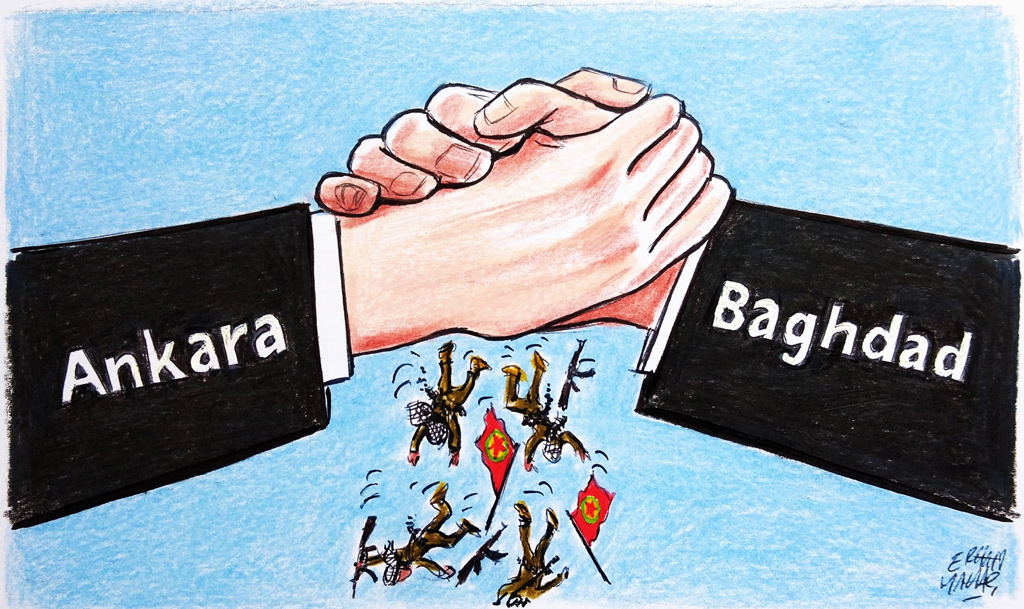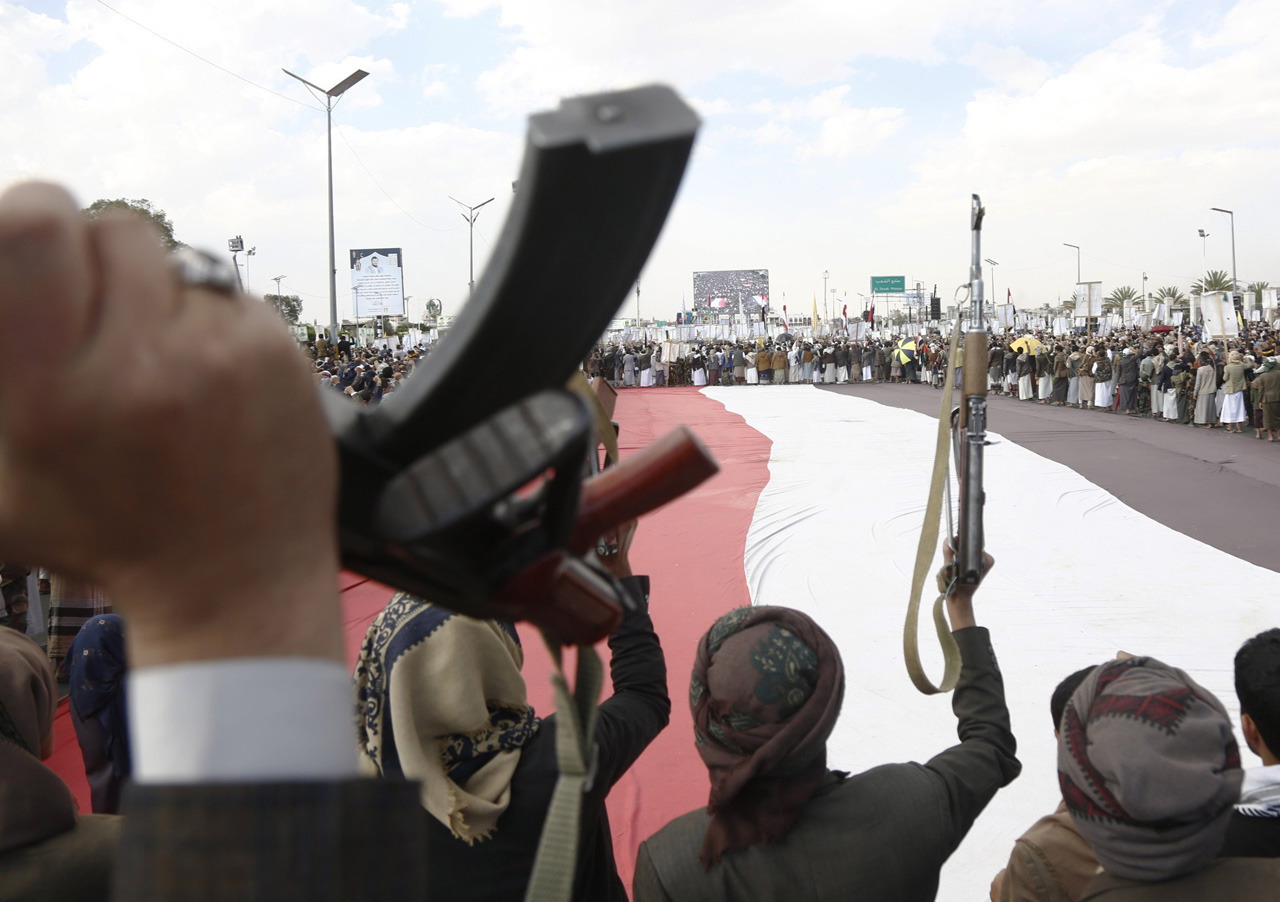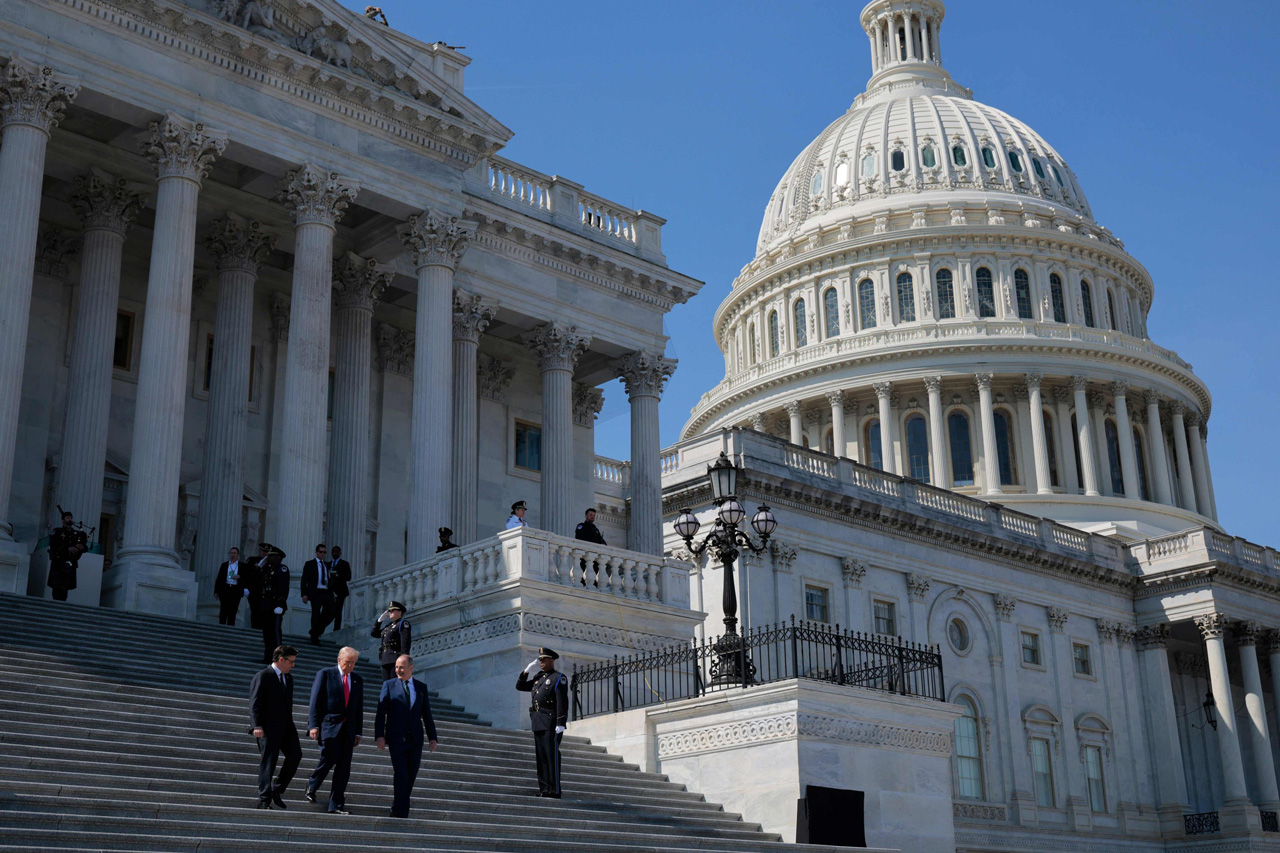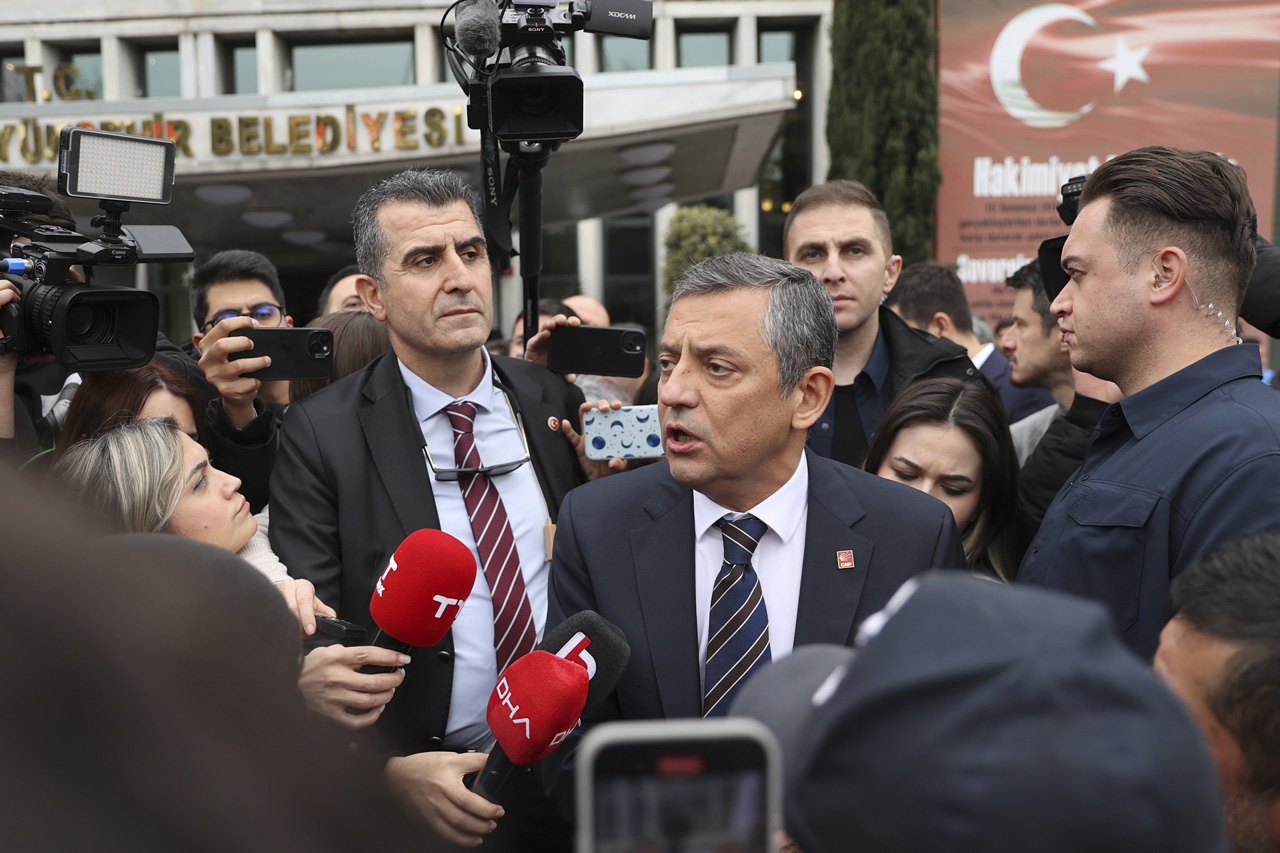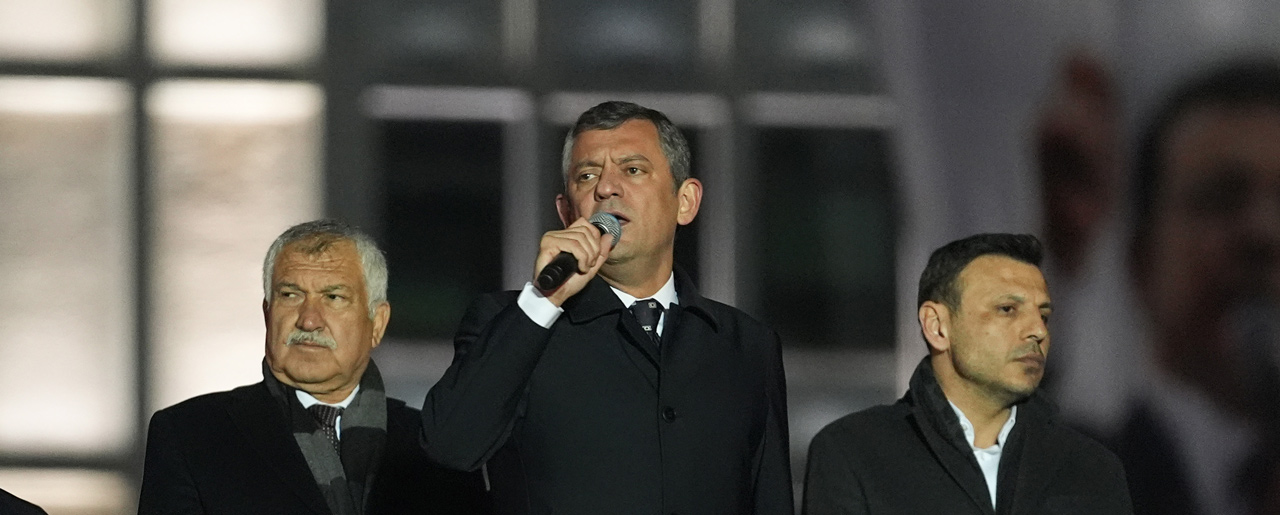Türkiye and Iraq issued a joint statement following last week’s security summit in Baghdad, marking the beginning of a new chapter in bilateral relations.
Stating that President Recep Tayyip Erdoğan’s post-Ramadan visit to the country will result in a forward leap in Turkish-Iraqi relations, the document noted that the two governments had agreed to create a strategic framework for all aspects of their relationship. For this purpose, Ankara and Baghdad will establish joint standing committees on counterterrorism, trade, agriculture, energy, water, health and transport. More importantly, they identified PKK as a common security threat and Iraq’s National Security Council will henceforth designate the group as an outlawed organization. To get here, Foreign Minister Hakan Fidan, MIT Director Ibrahim Kalın and Defense Minister Yaşar Güler have worked tirelessly with their Iraqi counterparts in recent months. Let us recall that Ankara has been in contact with Baghdad for many years regarding
the fight against PKK and the two countries shook hands more than once in the past – which begs the question of why the most recent agreement should be considered the beginning of a new chapter in the counter-PKK campaign and bilateral partnerships.
It is possible to argue that three points deserve attention concerning the transition of a new stage in
bilateral relations.
Counterterrorism efforts against PKK threat
First, Ankara is kicking off a new stage of its counterterrorism campaign in light of a series of PKK attacks in northern Iraq in November, December and January. In addition to setting up a joint operations center with Baghdad, it is creating a "security corridor" up to 40 kilometers (25 miles) from the border. At the same time, the Turkish government continues to mount pressure on the Patriotic Union of Kurdistan (PUK) and its leader Bafel Talabani to end their support for PKK militants. At this rate, Baghdad will strengthen its influence over all of Iraq and the new arrangement will prevent PKK from posing a challenge to the country’s security.
Secondly,
the Development Road Project (which consists of 1,200 kilometers of railroads and highways between Basra and Ovaköy) represents a significant "leap forward" in economic relations. To ensure that road’s safety, it is necessary to end the PKK presence in Iraq (starting with Matina and Gara). Keeping in mind the unstable situation and unsafe conditions in the Red Sea, that project gains additional importance for the shipment of goods between Asia and Europe.
Last but not least, it is important to remember that the Iraqi government has been calling on the United States to withdraw from Iraq. Since such a move would make it impossible for American troops to remain in Syria, hardly anyone expects Washington to rush to a decision. Still, U.S. decision-makers are reportedly debating the withdrawal of their armed forces from Iraq and Syria over the next year or two – especially if former U.S. President Donald Trump wins the presidential race. Accordingly, Iraq needs to elevate its relations with Türkiye to a strategic level to counter-balance Iran’s significant influence in the post-U.S. period. Taking into consideration the energy file, starting with the resumption of oil shipments via northern Iraq, it becomes clearer what this "new chapter" entails.
Geopolitical shifts in Middle East
There is reason to expect Washington’s retreat from Iraq and Syria will seriously impact the region’s geopolitical situation (Israel’s security and the expansion of Iran’s influence) and Türkiye’s relations with the U.S.
There is no shortage of commentaries on the Oct. 7 attack
reshaping the Middle East. Provided that Israel’s security proved to be highly fragile, it seems unreasonable for the U.S. to leave the region. There is no reason to think that Washington would like to withdraw from the Middle East, in which China and Russia remain interested, and let Iraq and Syria fall into Iran’s sphere of influence. In this sense, Washington could reposition itself in Iraq and Syria – provided that it will not just leave the Gulf. That would require two key NATO allies, Türkiye and the U.S., to work together once again.
In the aftermath of the Turkish approval of Sweden’s NATO membership and
the U.S. approval of the F-16 fighter jet deal, Fidan and Kalın visited Washington – which reflected the most positive atmosphere in bilateral relations in a decade. The rapprochement between Ankara and Baghdad as well as Ankara and Washington, too, complement each other.
We will spend more time talking about Iraq and Syria over the next few months.
[Daily Sabah, March 19, 2024]
